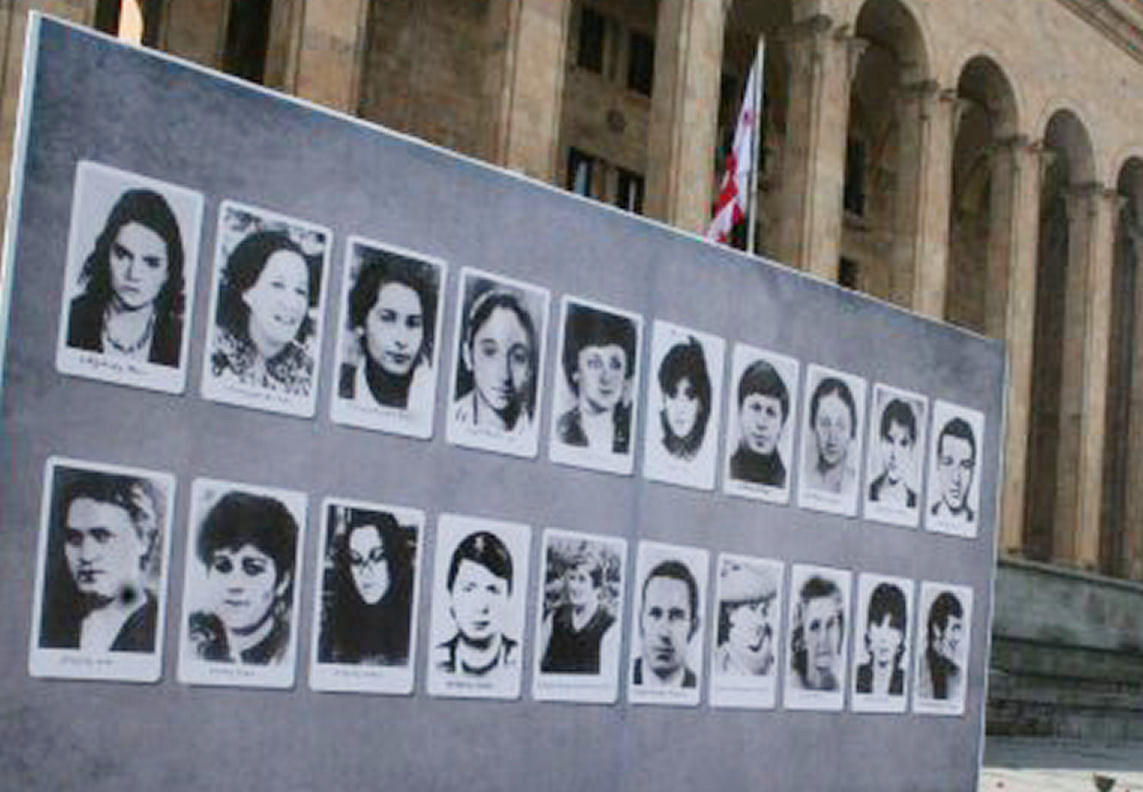The disputed memory of 1989 in Tbilisi
Kobakhidze's government avoids mentioning the Russians on the anniversary of the harsh Soviet repression. Former president Zurabishvili accuses ‘anonymous foreign forces’ of the massacre. Relatives of demonstrators arrested during pro-European marches in recent months gather at the victims' memorial.
Tbilisi (AsiaNews) - The former president of Georgia, Salome Zurabishvili, criticised the representatives of the Georgian Dream for their interpretation of the tragic events of 9 April 1989, when Soviet soldiers massacred demonstrators on Prospekt Rustaveli in Tbilisi, and not some anonymous ’ foreign forces’. They were “Russian men and you don't have the courage to admit it”, he commented, claiming that that was the day of the “Victory of the peaceful struggle of the Georgians against the Russians”. Prime Minister Irakli Kobakhidze had issued a statement that made no mention of Soviet armies, and compared the foreign interventions of that time with those of today, which ‘continue to pour violence on the centre of the Georgian capital’.
Kobakhidze does in fact state in the official communiqué that ‘even today foreign forces incite mutual hatred in the streets of Tbilisi and try to artificially destroy the unity of Georgians, fighting against the authentic idea of freedom’, but the experience of 9 April, in his opinion, ’ has taught us that the existence of foreign powers is not eternal, and that love and freedom always triumph over hate and slavery’. The Georgian government is therefore trying to “quench these negative energies and avoid any provocation, even the smallest, among the many planned by foreign powers in our country”.
Zurabishvili instead points the finger of shame at the ‘so-called Georgian government’, which doesn't want to recognise that ‘only the Russians and their slaves bring war and violence to the world’, while those protesting today in Georgia ‘want peace, believe in a better future and celebrate the independence of their country’. The ‘fifth president’, as she is defined by her supporters who consider her the only legitimate authority in the country, also criticised the Minister of Defence, Iraklij Čikovani, who is also afraid to use the term ‘Russians’ to define the oppressors of 9 April: ‘How does this minister defend us, and from whom does he defend us?’. And addressing the members of the ruling party, who ‘display patriotism and nationalism’, she asks ‘how they plan to sell off the future of Georgia, given that they have already sold off its past’.
The former president did not visit the Memorial to the victims of 1989, speaking on 9 April in the Senate of the Czech Republic, also to avoid having to meet with the ‘illegitimate’ representatives of Georgian institutions. However, there was no shortage of demonstrators on Prospekt Rustaveli, up to the parliament building, led by the relatives of the demonstrators arrested in recent months during pro-European demonstrations, who tried to prevent the representatives of the Georgian Dream from approaching the Memorial, with consequent tensions and street clashes. Prime Minister Kobakhidze, like the President of the Republic Mikhail Kavelašvili, also avoided going to the memorial.
On 9 April 1989 Soviet troops used flame throwers, spades and toxic substances to disperse the demonstrators demanding independence from the USSR in one of the first popular uprisings during Gorbachev's perestroika period, causing 21 deaths, mostly women. Around 200 people were hospitalised immediately after the demonstration, and many others sought treatment in the days that followed. On the second anniversary of the tragedy, 9 April 1991, Georgia finally proclaimed its independence, which had been lost in 1921 with the Soviet occupation, and on that day the Supreme Council of the State approved the declaration of restoration of the Caucasian country's sovereignty.







.png)










